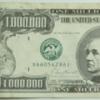
Originally Posted by
jeff norris 2011

Of course the 'markets' are the exact opposite as the math says on average you will make money ion the long term. The longer you stay the more likely you are to make money.
The question is if you could have made more money elsewhere.
Yeah, there have been a lot of studies that have shown that unless you have inside information, the best you can do long term is the average of the performance of the market. Of course, some private funds do get inside information. The fund managers cultivate people at various companies they're invested in and get advanced warning of changes in the fortunes of those companies.
Most of those private funds have very large initial investment requirements so it's another example of how the rich do better than the rest of us.
Mike
Go into the world and do well. But more importantly, go into the world and do good.






 Reply With Quote
Reply With Quote

 - Had a few pushes, but not a single winner.
- Had a few pushes, but not a single winner. 
 )
)
